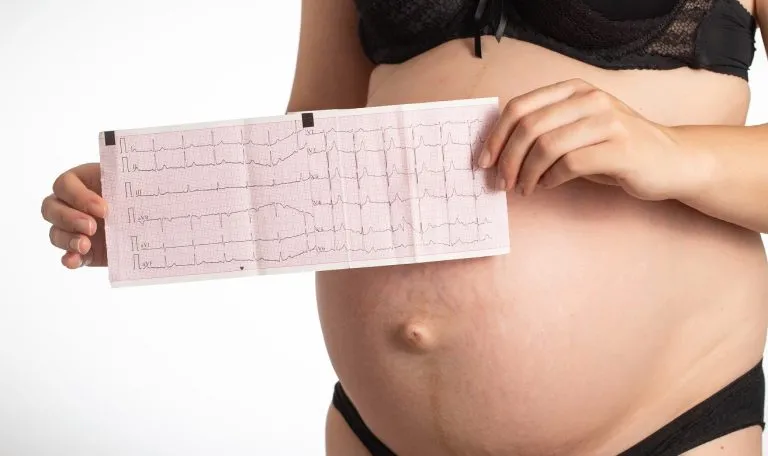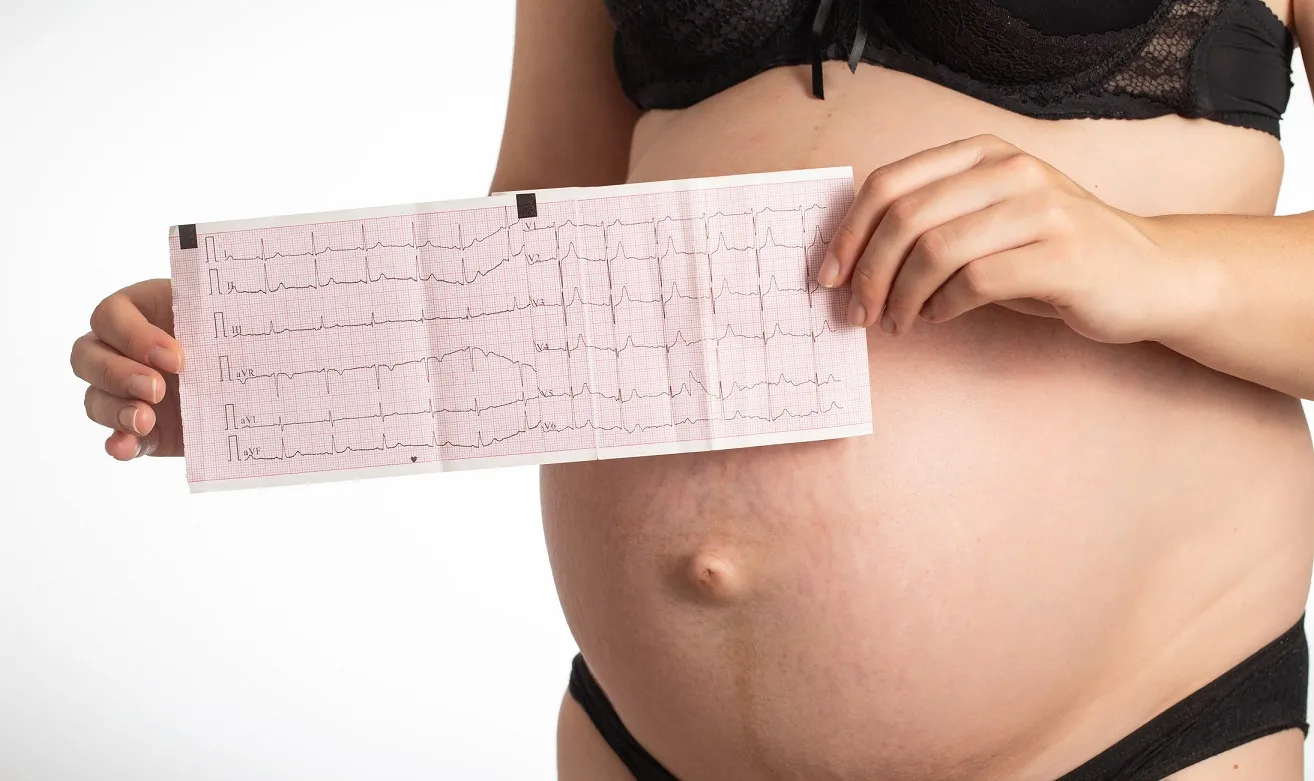A properly functioning circulatory system in a pregnant woman is essential for proper fetal development. Although during pregnancy there are many physiological changes in the cardiovascular system, it is also a period when quite possibly abnormalities in its work. What are the most common cardiac problems in pregnancy?
Cardiac problems in pregnancy- changes in the body of the future mother
During pregnancy, many changes take place in the body of the mother-to-be. The cardiovascular system is not spared either. Physiologically, circulating blood volume and heart rate increase. In turn, blood pressure drops. In pregnant women, therefore, blood pressure should be lower than outside pregnancy. The enlarging uterus, along with the baby, compresses the inferior vena cava making venous return difficult especially when lying on the back. In turn, this can lead to fainting or dizziness.
Cardiac problems in pregnancy-fainting spells
A fairly common problem for pregnant women is fainting. They can happen in any trimester of pregnancy. They can be caused by electrolyte disorders, low blood sugar, anemia or hypotonia (low blood pressure). These are causes that in most cases do not require specialized treatment. Sometimes, however, there is a more serious, cardiac cause behind syncope, such as a previously undetected heart defect or cardiomyopathy. In such a situation, the intervention of a specialist is necessary.
If too low blood pressure is responsible for fainting, care should be taken to ensure adequate hydration. The mother-to-be should take min. 2.5 liters of liquids a day, preferably non-carbonated, unsweetened and of course – non-alcoholic. Hydration is especially important in hot weather. Prolonged standing and staying in stuffy rooms should also be avoided.
Cardiac problems in pregnancy- rhythm disturbances
Arrhythmias in pregnant women are relatively common. They can be a continuation of a problem that occurred before pregnancy or occur for the first time during pregnancy. In most cases, the use of antiarrhythmic drugs is not required, but in any situation the patient should be consulted by a cardiologist. The most common symptom of an arrhythmia is the so-called “arrhythmia. heart palpitations. The mother-to-be feels them as an accelerated and “stronger” heartbeat. To diagnose arrhythmias, a heart echo may be performed, as well as a holter ecg, which monitors the heart around the clock.
Read more:
Arrhythmia in pregnancy
Cardiovascular problems in pregnancy-hypertension
The most common heart problem is hypertension in pregnant women. It can be chronic or caused by pregnancy. Note that many medications used for hypertension outside of pregnancy cannot be used in moms-to-be. Most commonly, hypertension in pregnancy is treated with methyldopa, or the popular Dopegyt. Pregnant women should measure their blood pressure daily, and if the value is above 140/90 mmHg, report to the attending physician or emergency room. Uncontrolled hypertension can lead to the development of dangerous complications such as pre-eclampsia and separation of the placenta.
Rate this article:











